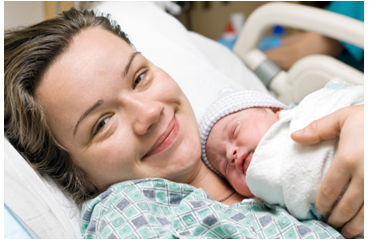Are you breast feeding and wish you could have a beer this St. Patrick’s Day? You can! And it could assist your milk production. The polysaccharides in the barley, the main building block of beer, stimulates prolactin and encourages milk production.

The journal of Advances in Experimental Medicine and Biology published a study about researchers in Munich who discovered that polysaccharides in barley stimulates prolactin which aids milk production.
However, the alcohol actually works against you and can inhibit milk production. The good news is that the non-alcoholic beer has the same stimulating effects. It is also important to be aware that the alcohol is present in your breast milk at the same level as in your blood. The suggested best time to consume a beer is right after feeding and it is recommended that alcohol intake while breastfeeding be limited and occasional.

If your milk production is decreasing or you would like to increase your milk supply, consult a Chiropractor. Getting adjusted while breastfeeding has been shown to increase milk production. Misaligned vertebrae can disrupt nerve and hormone function which can impact breast development. These subluxations, misalignment and interferences in the spine, can be interfering with lactation and milk production.
An article in the Journal of Clinical Chiropractic Pediatrics documented 3 case studies of chiropractic care and new mothers who were unable to produce adequate milk. All three woman experienced positive results from chiropractic care.
How a mother holds her baby and baby’s body while breastfeeding is also important. Chiropractic can help with pain, spinal alignment and posture. Spinal adjustments have shown results such as improved milk production, infant weight gain and maternal comfort.
As beneficial as it is for you to receive Chiropractic adjustments after giving birth and while breastfeeding, I also encourage you to have your baby assessed as well.

The birthing process and procedures often cause trauma and stress to the baby’s cranium and spine which can lead to breastfeeding difficulties. In assisted births, the action of the infant’s jaw can be affect from the tools which would interfere with the baby’s ability to suckle.
A baby’s skull is made up of 22 bones with 34 joints and the systems necessary for feeding are controlled by 60 muscles and 6 cranial nerves. If these mechanics are compromised, your infant might have difficulty breastfeeding.
A case published in the Journal of Chiropractic Medicine involved a baby unable to breastfeed. Following a history and examination, the infant received gentle chiropractic care based on the clinical findings. Immediate improvement and complete resolution of the nursing problems were observed after 3 treatments over 14 days.
A vaginal birth without intervention can also cause changes and misalignment to your infant’s spine which can lead to discomfort and difficulties. Even if your baby is breastfeeding with ease, I recommend that you and you baby can in and get adjusted. Call us today at 905-845-2991.




Leave a Reply